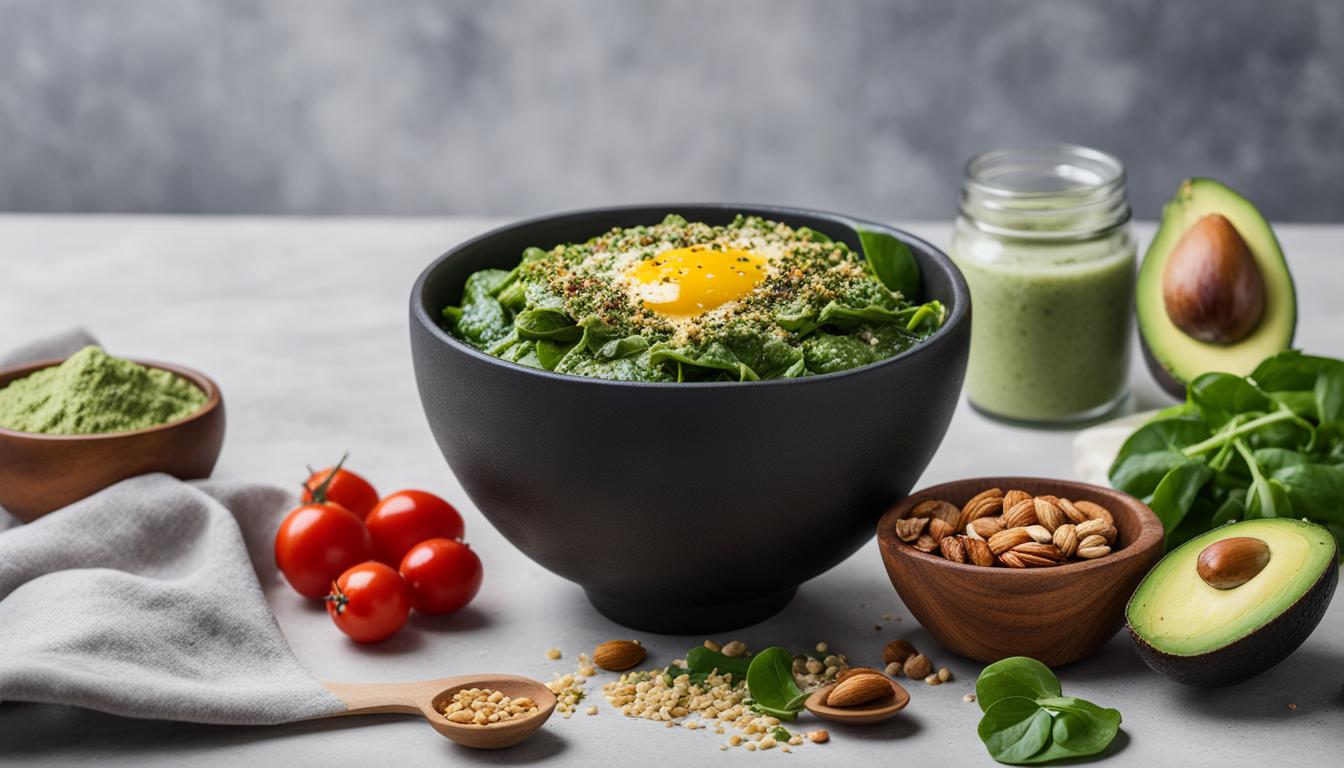Unlock the Sweet Secret: Xylitol – Your Keto-Friendly Ally for Delicious Low-Carb Recipes!
Introduction to Xylitol
Have you ever heard of xylitol? If not, you are in for a treat! Xylitol is a natural sugar alcohol that is gaining popularity, especially among those following a ketogenic lifestyle. Let’s dive into this sweet secret and uncover how it can be your keto-friendly ally for creating delicious low-carb recipes.
What is Xylitol?
Xylitol is a sugar alcohol that is found in various fruits and vegetables. It is also produced from the woody fibres of plants, such as birch. This sweetener is recognized for its similarity in taste and sweetness to regular sugar, making it an excellent alternative for those looking to reduce their sugar intake.
Origins of Xylitol
Xylitol’s origins can be traced back to the 19th century, and it became popular in Europe for its dental benefits. It is commonly used as a sugar substitute in many products and has gained attention due to its positive impact on oral health.
Common Uses in Various Products
Xylitol is widely used in the food industry, especially in products such as sugar-free chewing gum, mints, and diabetic-friendly foods. It is also a common ingredient in oral care products like toothpaste and mouthwash. This versatile sweetener has found its way into many recipes and is particularly useful for those following a ketogenic diet due to its low glycemic index.

Benefits of Xylitol on a Keto Diet
Are you looking for a keto-friendly sweetener that satisfies your sweet tooth without derailing your low-carb lifestyle? Look no further than xylitol! This amazing natural sweetener has gained popularity among individuals following a ketogenic diet due to its numerous benefits.
Xylitol is a suitable sweetener for individuals following a keto diet because of its low glycemic index. This means that it has minimal impact on blood sugar levels, making it an excellent choice for those aiming to maintain ketosis. With a glycemic index of 7, xylitol is absorbed into the bloodstream at a slow and steady pace, preventing spikes in blood sugar levels and insulin release, which is crucial for staying in ketosis.
What’s more, xylitol offers the sweetness of sugar without the guilt. It contains 40% fewer calories than sugar, making it a fantastic option for anyone looking to cut down on their calorie intake while still enjoying delicious sweet treats. Plus, it’s important to note that xylitol is also beneficial for dental health, as it helps prevent cavities and tooth decay.
Incorporating xylitol into your keto lifestyle opens up a world of possibilities for creating mouthwatering low-carb desserts and beverages, giving you the freedom to indulge in sweet flavors without compromising your dietary goals.
Xylitol vs. Other Sweeteners on Keto
Let’s dive into the world of sweeteners and explore how xylitol stacks up against other popular choices like erythritol and stevia. Taste, texture, and impact on ketosis are key factors to consider when deciding which sweetener to use in your keto-friendly recipes.
Taste
When it comes to taste, xylitol is often compared to regular sugar, offering a sweet flavor without the bitter aftertaste associated with some other sugar substitutes. Erythritol also provides a similar taste profile to sugar, whereas stevia can have a slightly bitter or metallic aftertaste for some individuals. The advantage of xylitol and erythritol is that they closely mimic the taste of sugar, making them more versatile for a wide range of recipes.
Texture
In terms of texture, both xylitol and erythritol share similarities with sugar, providing a granular consistency that is ideal for baking and cooking. On the other hand, stevia is often available in powdered or liquid form and may not contribute to the texture of baked goods in the same way that xylitol and erythritol do.
Impact on Ketosis
Now, let’s address the impact on ketosis. Xylitol and erythritol have minimal impacts on blood sugar and insulin levels, making them favorable choices for maintaining ketosis. Stevia is also considered a keto-friendly sweetener, as it does not raise blood glucose levels. Therefore, all three sweeteners can be incorporated into a ketogenic lifestyle without significantly impacting ketosis.
In conclusion, all these sweeteners have their own unique characteristics, but for those seeking a sugar-like taste and texture without compromising ketosis, xylitol and erythritol are excellent choices.
IV. Incorporating Xylitol into Keto Recipes
Now that you know all about the wonderful benefits of xylitol in the ketogenic diet, it’s time to get creative and start incorporating it into your recipes. Whether you have a sweet tooth or love to whip up delicious snacks and beverages, xylitol can be your keto-friendly ally in creating mouthwatering low-carb treats.
Keto-Friendly Sweetener Swap
When it comes to keto-friendly desserts, beverages, and snacks, xylitol can easily replace sugar in a 1:1 ratio. This means you can enjoy your favorite sweet treats without worrying about spiking your blood sugar levels or getting kicked out of ketosis.
Delicious Desserts
For desserts, consider using xylitol in recipes for keto-friendly cheesecakes, chocolate mousse, or coconut flour cookies. The versatility of xylitol allows you to create decadent sweets while keeping the carb count low.
Refreshing Beverages
Quench your thirst with keto-friendly beverages sweetened with xylitol. Try incorporating it into iced teas, lemonades, or smoothies for a guilt-free, sweet experience. Your taste buds will thank you for the delightful refreshment.
Savory and Sweet Snacks
When it comes to snacks, xylitol can elevate the flavor of your keto-friendly treats. Think of incorporating it into nut clusters, homemade granola, or even in a sprinkle on top of keto fat bombs for an added touch of sweetness.
With xylitol, the options are endless for creating delectable keto-friendly desserts, beverages, and snacks that will keep you on track with your low-carb lifestyle while satisfying your cravings for sweetness.
Now that you have the inside scoop on xylitol, don’t be afraid to experiment and have some fun in the kitchen – your taste buds will thank you for it!
Potential Side Effects and Precautions
While xylitol is a fantastic keto-friendly sweetener, like anything, moderation is key. Consuming xylitol in excess can lead to potential side effects, especially in terms of digestive issues.
Research has shown that excessive consumption of xylitol may cause digestive discomfort, including bloating, gas, and diarrhea, particularly when taken in large amounts. However, it’s important to note that these effects vary from person to person, and not everyone may experience them.
To avoid these potential side effects, it’s essential to practice moderation. Start with small amounts of xylitol and gradually increase as your body adjusts. Additionally, be mindful of your overall intake of xylitol from various sources, including sugar-free gum, mints, and other sugar-free products. By being conscious of your consumption, you can still enjoy the benefits of xylitol as a keto-friendly sweetener without experiencing adverse effects.
VI. Safety of Xylitol for Pets
Before we delve deeper into the delightfully sweet world of xylitol and its keto-friendly attributes, let’s take a moment to address an important matter – the safety of xylitol for our furry friends. As much as we adore the benefits of xylitol for our low-carb lifestyles, it’s crucial to be mindful of its potential toxicity to pets, especially dogs and cats.
Research has shown that xylitol, while safe for human consumption and even beneficial for individuals following a ketogenic diet, can be extremely harmful to our four-legged companions. When pets ingest xylitol, it can cause a rapid release of insulin, leading to a dangerous decrease in blood sugar levels, known as hypoglycemia. Symptoms of xylitol poisoning in pets include vomiting, weakness, seizures, and in severe cases, liver failure.
As pet owners and advocates of the ketogenic way of life, it’s our responsibility to ensure that xylitol-containing products are kept well out of reach of our furry friends. Whether it’s sugar-free gum, candies, or baked goods sweetened with xylitol, we need to be vigilant in safeguarding our pets from accidental ingestion.
Instead, consider using alternative keto-friendly sweeteners in your pet-friendly recipes, such as stevia or erythritol, which don’t pose the same risks to animals. By making a conscious effort to keep xylitol away from pets and opting for safer alternatives, we can continue to embrace the benefits of xylitol in our keto-friendly culinary adventures while prioritizing the well-being of our beloved companions.
Remember, the key to a successful keto lifestyle is not only about nourishing our bodies but also about creating a safe and healthy environment for all members of our households, including our furry friends.
Choosing Quality Xylitol Products
When it comes to selecting the best xylitol products for your keto-friendly lifestyle, it’s essential to consider factors like purity, certifications, and reputable brands. Here’s a guide to help you make the right choices.
Checking for Purity
First and foremost, purity is crucial when choosing xylitol for your ketogenic diet. Look for products that are 100% pure xylitol, without any added sugars or fillers. High-quality xylitol is derived from birch bark or non-GMO corn, and reputable brands will clearly state the source of their xylitol on the packaging.
Opt for products that have undergone rigorous purification processes to ensure the removal of impurities, resulting in a clean-tasting sweetener that won’t spike your blood sugar levels.
Certifications and Reputable Brands
It’s also important to look for xylitol products that have certifications from reputable organizations. For example, certifications from the Non-GMO Project or the US Pharmacopeial Convention (USP) demonstrate a commitment to quality and safety.
When it comes to choosing brands, opt for well-established companies with a track record of producing high-quality xylitol. Look for customer reviews and ask for recommendations within the keto community to find brands that consistently deliver on purity and taste.
Summarize the key points about xylitol being a keto-friendly sweetener
Xylitol is a keto-friendly sweetener that offers a multitude of benefits for those following a ketogenic lifestyle. Its low glycemic index of 7 makes it an excellent alternative to sugar, as it has little to no effect on blood sugar and insulin levels. This is supported by a study published in the “Journal of the American Dental Association,” showcasing that xylitol consumption does not lead to a significant increase in blood glucose or insulin levels.
Furthermore, xylitol possesses 40% fewer calories than sugar, making it an ideal choice for individuals aiming to manage their weight while indulging their sweet tooth. Its ability to promote dental health by preventing cavities and reducing plaque formation, as confirmed by the “International Journal of Dentistry,” sets it apart as a unique sweetener for those embracing the ketogenic lifestyle.
Final recommendation for its use on a keto diet
In conclusion, with its low glycemic index, reduced calorie content, and potential dental health benefits, xylitol emerges as an exceptional keto-friendly sweetener. Its versatility in cooking and baking makes it a valuable ally in creating delicious low-carb recipes without compromising on taste. To fully unlock the sweet secret of xylitol on your keto journey, consider incorporating it into your daily routine in moderation as a preferred alternative to sugar.


